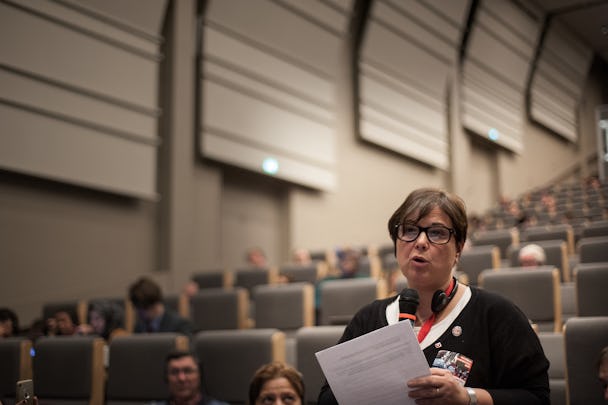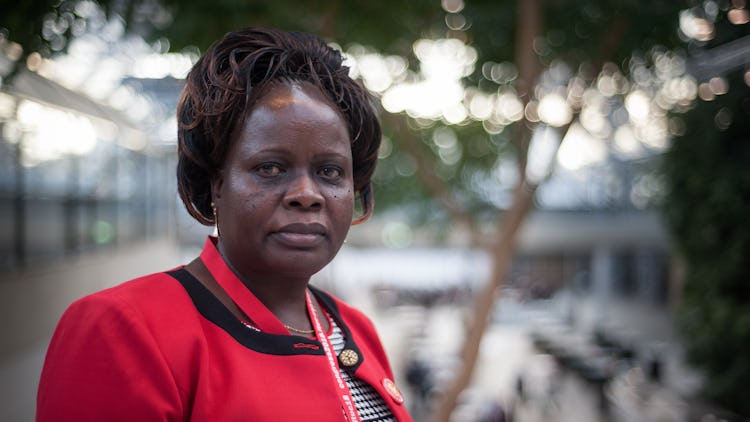“A major transformation is underway”
Organising workers in the gig economy, robots in healthcare and the need to check Facebook’s power. Arbetet Global listened in when the International Trade Union Confederation (ITUC) discussed the future of work.

Tania Scacchetti, CGIL.
Apart from electing a secretary general for the next four years and announcing ‘the world’s worst boss’, the ITUC discusses various strategic challenges during its ongoing congress in Copenhagen.
Discussions about organising, wages and inequality, as well as the working life of the future, are taking place throughout the week-long congress.
And with 1,200 delegates from more than 130 countries – often with widely different conditions and challenges – there are many different views.
The gig and platform economy, which includes companies such as Uber and Airbnb, was a hot topic for the plenary group on the future of work.
“In Chile, new technologies are used to deprive workers of their rights. People are forced to work under awful conditions. Therefore, I think it is very important to establish global strategies for how unions will meet this challenge internationally,” said Bárbara Figueroa, chairperson of the Chilean trade union confederation CUT.
Tania Scacchetti from the Italian federation CGIL agreed and raised the importance of organising the new informal sector that the gig economy creates.
“A major transformation is underway and we must make sure we represent all new forms of work. We must stop the race towards the bottom and ensure that workers’ rights play a central role in the debate around new technology.”
Jeremy Dear, Vice President of the International Federation of Journalists (IFJ), gave a passionate speech about Facebook’s harmful effects on his industry.
“For our part of the labour market, they are the biggest disruptor. They make a profit of 335 billion and hardly pay any taxes. They don’t produce any content of their own, while undermining the business model of traditional journalism. As a result of newspaper cuts, entire cities are left with no independent media. A democratic deficit is spreading through entire sectors of society.”
On behalf of the Japanese trade union confederation JTUC-Rengo, Masayuki Shiota highlighted that technological development is not only a threat but also an opportunity.
“For us in Japan, there is a hope that technology can compensate for an aging population and lack of workers.”
Christy Hoffman, Secretary General of the global union federation UNI, agreed that it is important to keep the positives in mind.
“In the healthcare sector, new technologies can contribute to a better working environment and less heavy lifting.”
LO Norway’s youth representative Lone Lunemann Jørgensen took a swipe at the high median age of the ITUC.
“At this congress, fewer than 30 per cent of delegates are under 35 years. It’s shameful! Where are the young people? We should also be represented here today, it’s our future we’re discussing.”
The chairperson of the working group responded as politely as always, but perhaps with a hint of self-conscious nervousness in his voice.
“Thank you very much for your comment, comrade.”
ITUC’s World Congress
The International Trade Union Confederation (ITUC) consists of 331 trade union confederations from more than 160 countries, which together represent 207 million workers.
Its World Congress is held every four years. In addition to electing ITUC’s Secretary General, the congress also announces, ‘the world's worst boss’ and determines the organisations focus for the next four years.
Three plenary groups also deal with the topics organising, wages and inequality and the future of work.









